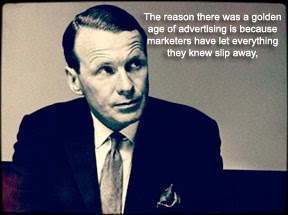Many of my friends already know it, but I thought to share it here too. The day before my birthday last week was one of the most significant in my life. It didn't necessarily feel that way, but it was.
Last Wednesday was the six-month follow-up appointment to the radical nephrectomy I underwent last May. The surgery was the best possible option to remove a malignant mass in my right kidney.
The intent of the follow up was very straightforward: confirm the malignancy was removed, check for any signs of reoccurrence, and assess how well the left kidney was managing its new workload.
I'm grateful for the outcome. While some pre-CT scan numbers were elevated, there is no sign of malignancy. It was good enough news to close out that chapter of my life for good. There will be more follow ups annually for the next five years, but everything else is as bright as a blank slate.
The quantity of time we have is not as important as the quality.
My recovery has been brisk. As soon as I was cleared, I planned out a suitable workout schedule at home. While it is still short of an effective low impact cardio element, I've met or surpassed most pre-surgery benchmarks. My 2-inch post surgery pouch is almost gone. I see a Spartan Race in my future.
Psychologically, the six-month follow up quelled a common side effect among cancer survivors. Most are concerned about cancer reoccurrence. And while I was never afraid of reoccurrence per se (my heartfelt support for those who are), I did find that any long-term commitments always made me immediately uncomfortable. I felt like I was trying to talk around an elephant.
I would have preferred to have it out in the open, but I also understand most people would rather not. No matter. For me it was a temporary condition, but one that has given me a permanent empathy for anyone who has been diagnosed with or survived cancer or any life-threatening ailment.
It made me realize that not only does cancer deserve a cure, but those afflicted also deserve a society that doesn't look upon them as a threat to the illusion of security. And we might not stop with cancer patients but include anyone society attempts to seclude as being short-listed by age or ailment. They don't need sympathy or pity as much as reassurance that it's all right to recognize life as temporary.
After all, it's only in knowing that our lives are fleeting in a very real and public sense that we can keep ourselves challenged from the comfort of complacency — when one day becomes indistinguishable from the next. We really don't have time to waste on mediocrity.
Most of us know it too, even if we require something big to shake us awake. As Jay Ehret said so eloquently: "Putting duct tape on your life does not give you a different life. Sometimes you just need to let it break so that you can get something new."
He might be right. We'll see. I felt pretty broken about 180 days ago, an eternity on the Internet.
Everyone is driven by something. We can choose what drives us.
Some people are driven by success. Some people are driven by greed. Some people are driven by fame. Some people are driven by fear. And some people are driven by their past. There are infinite numbers of them to choose from and whatever anyone chooses isn't all that important.
What is important is knowing that everybody is driven by something. And we all have an opportunity to choose what it might be. All we have to do is be aware of what it is and be conscious that we choose it.
Like anyone, looking back, I can list about a dozen drivers at different times in my life. Some of them are admirable. Some of them certainly less so. But what they were doesn't matter any more. What matters is that they're different today and I'm grateful to even have another chance. How about you?
Happy Thanksgiving. If I had a wish to give, it would be for everyone to find the purpose that fits. And then? I would want them to share it with those closest at home for this holiday and then again in whatever they do afterwards. Everyone can make it meaningful not in minutes but in magnitude.
Be grateful. Be silly. Be yourself. I know I am. Thank you for all of it. Good night and good luck.
Last Wednesday was the six-month follow-up appointment to the radical nephrectomy I underwent last May. The surgery was the best possible option to remove a malignant mass in my right kidney.
The intent of the follow up was very straightforward: confirm the malignancy was removed, check for any signs of reoccurrence, and assess how well the left kidney was managing its new workload.
I'm grateful for the outcome. While some pre-CT scan numbers were elevated, there is no sign of malignancy. It was good enough news to close out that chapter of my life for good. There will be more follow ups annually for the next five years, but everything else is as bright as a blank slate.
The quantity of time we have is not as important as the quality.
My recovery has been brisk. As soon as I was cleared, I planned out a suitable workout schedule at home. While it is still short of an effective low impact cardio element, I've met or surpassed most pre-surgery benchmarks. My 2-inch post surgery pouch is almost gone. I see a Spartan Race in my future.
Psychologically, the six-month follow up quelled a common side effect among cancer survivors. Most are concerned about cancer reoccurrence. And while I was never afraid of reoccurrence per se (my heartfelt support for those who are), I did find that any long-term commitments always made me immediately uncomfortable. I felt like I was trying to talk around an elephant.
I would have preferred to have it out in the open, but I also understand most people would rather not. No matter. For me it was a temporary condition, but one that has given me a permanent empathy for anyone who has been diagnosed with or survived cancer or any life-threatening ailment.
It made me realize that not only does cancer deserve a cure, but those afflicted also deserve a society that doesn't look upon them as a threat to the illusion of security. And we might not stop with cancer patients but include anyone society attempts to seclude as being short-listed by age or ailment. They don't need sympathy or pity as much as reassurance that it's all right to recognize life as temporary.
After all, it's only in knowing that our lives are fleeting in a very real and public sense that we can keep ourselves challenged from the comfort of complacency — when one day becomes indistinguishable from the next. We really don't have time to waste on mediocrity.
Most of us know it too, even if we require something big to shake us awake. As Jay Ehret said so eloquently: "Putting duct tape on your life does not give you a different life. Sometimes you just need to let it break so that you can get something new."
He might be right. We'll see. I felt pretty broken about 180 days ago, an eternity on the Internet.
Everyone is driven by something. We can choose what drives us.
Some people are driven by success. Some people are driven by greed. Some people are driven by fame. Some people are driven by fear. And some people are driven by their past. There are infinite numbers of them to choose from and whatever anyone chooses isn't all that important.
What is important is knowing that everybody is driven by something. And we all have an opportunity to choose what it might be. All we have to do is be aware of what it is and be conscious that we choose it.
Like anyone, looking back, I can list about a dozen drivers at different times in my life. Some of them are admirable. Some of them certainly less so. But what they were doesn't matter any more. What matters is that they're different today and I'm grateful to even have another chance. How about you?
Happy Thanksgiving. If I had a wish to give, it would be for everyone to find the purpose that fits. And then? I would want them to share it with those closest at home for this holiday and then again in whatever they do afterwards. Everyone can make it meaningful not in minutes but in magnitude.
Be grateful. Be silly. Be yourself. I know I am. Thank you for all of it. Good night and good luck.



















































